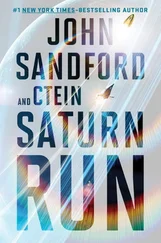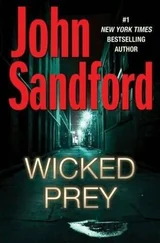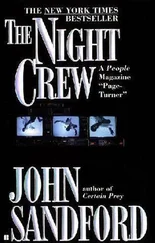“Get the money,” he said, as he rolled the garage door up.
Zhang got an Amazon mailing box from the floor of his car and they went into the kitchen where he opened it to reveal stacks of fifty-dollar bills. He counted out twenty-five thousand dollars, beautiful engravings of Ulysses S. Grant piling up on the dining table.
The pile made Peck’s heart flutter. Maybe he wasn’t a total sociopath, he thought: he did love money.

Virgil got up at seven o’clock, feeling that all was right with the world, though he knew it wasn’t, never had been, and never would be. Honus was sleeping between Virgil and Frankie, yawned, and made Virgil yawn, then Virgil slapped Frankie on her lightly garbed butt and went to get cleaned up.
The new bed was a complete success. His toes no longer hung over the end, and when he needed to dig them in, he could.
Frankie squeezed into the bathroom as he was getting out of the shower, stared at herself in the fogged-up mirror for a moment, then asked, “Why do I look better when the mirror is fogged up?”
Far too experienced to attempt an answer, Virgil said instead, “I hope those tigers are okay.”
Frankie yawned, stretched, and then rubbed the fog off the mirror with a squeak-squeak sound and asked, “You coming back tonight?”
“If I can. I’m gonna take my bag, though. You’ve got to walk the dog and feed him; I don’t have time this morning.”
“All right. Sparkle and Bill are over at the Castro factory,” Frankie said. “Probably right now. They want to talk to workers going through the gate.”
“You worried?”
“Yep. Me and Sparkle don’t see eye to eye, but I don’t want her to get hurt. Bill should give her some protection. I don’t think they’d beat up anybody with a witness around… would they?”
“I don’t know that they’d beat up anybody at all,” Virgil said. “Most companies will beat you up with lawyers and PR ladies, not with goons. Not anymore.”
“Well, this is old man Castro we’re talking about. He’s a throwback to the bad old days,” Frankie said.
“You’re sure Bill will be there?”
“Yeah, he speaks good Spanish, if Sparkle needs an interpreter.”
“Tell you what-I’ll swing by there, talk with them,” Virgil said. “If the company people see me around, maybe they’ll think twice.”
–
Virgil was on the highway at eight o’clock, listening to radio news programs out of the Twin Cities. The tigers were the first item.
“… the longer the tigers are missing, the more likely the outcome is to be tragic, according to experts on zoo thefts. We’re speaking to Dr. Randolph Bern of the American Association of Zoological Gardens. Good morning, Dr. Bern…”
Virgil didn’t think too much about the media, except to exploit them when he needed to. The media was like rain: when it was falling on your head, there wasn’t much you could do about it. Unless, of course, you were a bureaucrat, in which case you ran around in circles and threw your hands in the air and prepared statements, none of which accomplished anything.
Dr. Bern told him nothing he needed to know, so he switched to a country station and listened to Terry Allen sing “Bottom of the World,” a song he didn’t hear often enough. On the way north, he detoured off Highway 169 through Le Sueur, threaded his way across town and out into the countryside, where the Castro factory poked up like a brick thumb.
Virgil turned into the dusty parking lot and saw Father Bill leaning against the hood of Sparkle’s Mini Cooper Clubman, smoking a cigar. Virgil pulled up next to him and got out.
“Virgil,” Bill said, with his square-toothed Hemingway grin. “You look different with your clothes on.”
“Bill: Where’s Sparkle?”
“She’s inside. Some factory… functionary… came out and asked her what she was doing, talking to people,” Bill said. “She told him, and they invited her inside to talk to the manager. I wasn’t invited.”
“She okay?”
“I hope so. She does tend to bite off more than she can chew,” Bill said.
Virgil looked at the factory, which resembled something he imagined a medieval madhouse might look like, dirty-white window frames scattered around a four-story dark brick wall, with massive chimneys belching steam into the summer air.
Down at the far end of the building, trucks were unloading produce across receiving docks, and the odor of hot pickle and rotten vegetables mixed with truck diesel fumes and the smell of the corn maturing in the surrounding fields: altogether, the familiar and not entirely pleasant perfume of industrial agriculture. The smoke from Bill’s cigar didn’t help.
“Hostile place,” he said.
“The people going in looked pretty tough-beat-up, tired. Lots of illegals, I think,” Bill said. “Mostly women, here at the factory. Most of them weren’t interested in talking to us. The ones that did said that everything was just fine. Sparkle thought maybe I should wear my collar out here, but I wasn’t comfortable doing that. Not without thinking about it for a while.”
“People look scared at all?” Virgil asked.
“No, no. They looked tired, more than anything.”
“Huh.” They stood and looked at the factory for another minute, then Virgil gave Bill a business card with his private cell number on it, and said, “If there’s any kind of trouble, call me.”
“I will. I’ve got to be to work by four o’clock, so I’ve got to be out of here before the first shift ends. I think Sparkle will be coming back alone this afternoon,” Bill said. He blew smoke, then added, “I don’t think there’ll be any trouble here, at the plant. If they give her any trouble, it’ll be away from here.”
“Well, let me know,” Virgil said. He handed Bill a second card. “Give one to Sparkle.”
–
Virgil stopped at the zoo, talked to Landseer for a few minutes to see if anything interesting had come in-e-mails with tips, ransom notes, abject confessions. Nothing had.
“I’m frightened and quite depressed,” she said. “I think the tigers may be gone forever.”
“If it goes a week, I’d agree. If we can get a hint, a crack, anything, soon, then we might be able to save them. If this is an insider job or if an insider provided keys to the tiger areas, then we need to find and locate that guy,” Virgil told her. “I know that managers don’t like to do anything that would suggest to employees that you suspect them of wrongdoing…”
“I won’t do that, not without specific evidence,” she said.
“… but what I’d like you to do is to come up with a list of people you think would be most likely to be involved,” Virgil said. “You don’t have to write anything down, do it in your head. Maybe talk it over with somebody else you trust. Then we’ll call them together, and mix in a bunch of people you’re sure are not involved… in other words, make it a big meeting. I’ll give a talk about the investigation and see if we can generate some tips.”
“In other words, you want me to put the finger on a specific group of people, but disguise it so it looks like we’re talking to everybody,” Landseer said.
“Exactly right,” Virgil said. “That way, nobody feels oppressed or anything, but at the same time, we whisper in the ear of the guilty party… or somebody who knows who the guilty party is.”
“Ethically, I’m not sure how that differs from me giving you a list of people to harass,” Landseer said.
“Ethically, there might not be any theoretical difference, but nobody gets their feelings hurt and nobody sues you. There are some practicalities involved.”
Читать дальше








